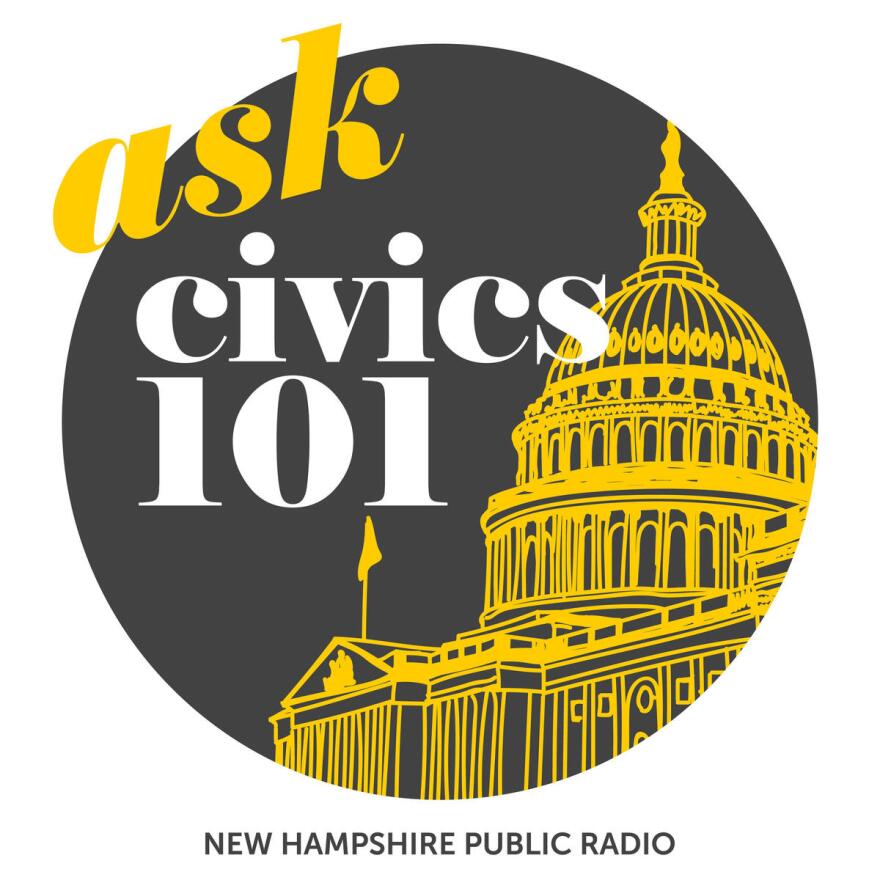Today’s Ask Civics 101 question: What happens to campaign funds after an election is over?
Read on, or listen to this short episode for the answer.
Do you have a question for the Civics 101 team? Click here to submit it.
We spoke with journalist Deborah D'Souza who recently wrote about the fate of campaign funds when the election ends for Investopedia.
"I was involved in looking at some of these figures," Deborah explains, "and who the big donors were to super PACs and the campaign committee and how much they were raising and who was raising more money. And as we came towards the end of the election, I got really curious about what's going to happen to all of this money, which is when I sort of pitched to my editor and was like, do you think people would be interested in knowing what happens to their donations?"
Though millions of donations flow into Political Action Committees, we'll focus on candidate campaign committees for the purposes of this story. It's important to first define "leftover funds."
"So when we talk about leftover funds," says Deborah, "we're talking about when all the rent has been paid, all of the salaries have been paid, the campaign have been wind it up and wind it down. So it's not that common, I would say, to have leftover funds. It's not that good either. You've probably not spent it correctly."
Leftover campaign funds are not necessarily a good thing. It is nothing like coming in "under budget" on a project. That's great for a house, but a bad sign in a campaign. Individuals donated those funds with the express purpose of upping a candidate's chances of election, and campaigning is really expensive. Every dollar you have leftover is money you did not spend on campaign ads, t-shirts, fliers, rallies, and, finally, paying off the debts accrued over the course of the campaign. Let's say, however, you do have funds remaining in the coffers when all is said and done. What happens to them?
"So the main rule to remember is no personal use so that's no mortgage, groceries, gas, country club membership, college tuition," says Deborah.
The Federal Election Commission says you can spend that leftover cash on only a handful of things.
"One of them is donated to charity and this is usually done by politicians who are planning to retire. The other thing you can do is you can transfer it to a future campaign if you're planning to run again, or you can transfer the whole amount to a national political party or local political party or state political party committee. So you could basically transfer all that. You can give a small amount to another candidate, I think it's two thousand dollars, to another candidate. So those are the main ways the FEC allows you to use it. You can also do nothing."
There is no rule that forces the closure of a campaign committee after an election. So, Deborah says, "you find reports of people leaving thousands or sometimes millions in the bank collecting interest for years. And when they're being asked by reporters one way from this money going to charity or whatever could be put to use by the political party they're affiliated with, they'll tell you that they haven't planned whether they're going to run again or they haven't really decided what they're going to do with the money. But you can just it can just collect interest in a bank. That's one possibility."
You can also make what the FEC calls “nominal” money gifts or donations to people outside of your family. And the FEC says if you drop out of the race, you have to redistribute, re-designate or refund funds within 60 days. Campaign committees rarely go the refund route, though.
There is one significant loophole in this process, however. That is the little-regulated leadership PAC, a political committee that is directly or indirectly established, financed, maintained or controlled by a candidate or an individual holding a federal office. A candidate can opt to transfer their money into one of these entities.
"And the rules for leadership PACs are completely different than the rules for your official campaign committee," Deborah explains, "So the personal use rule doesn't apply there. You can use it for travel, you can use it for dinner, concert tickets, all in the name of fundraising. There's just not that much scrutiny on it. And politicians have used their leadership PACs quite lavishly. So that's that's another that's a huge loophole that I mean, neither side seems keen on closing at this point."
It's important to note that the FEC has a number of vacancies right now. In order to meet and review audits and complaints, the Committee must comprise at least four members. Currently there are just three, and Congress is unlikely to confirm a fourth soon. Even if someone were to notice wrongdoing or violation in the bounds of a leadership PAC, there isn't much that could be done.
"I think a lot of people are just going to be worried about whether there is sufficient enforcement of any kind of scrutiny or oversight of any kind during this election as well," Deborah says, "because the process they have is audits or complaints that are submitted to them. And I just don't know how that will work if the agency that's supposed to enforce the rules have basically been shut down for months and months while all of the fundraising has gone on."
While you’re here… do you subscribe to the Civics 101 newsletter? No? Well, it’s free and it’s one of our favorite things and it’s where we put all the good stuff that doesn’t make it into the episodes. Go on, now, get it!






